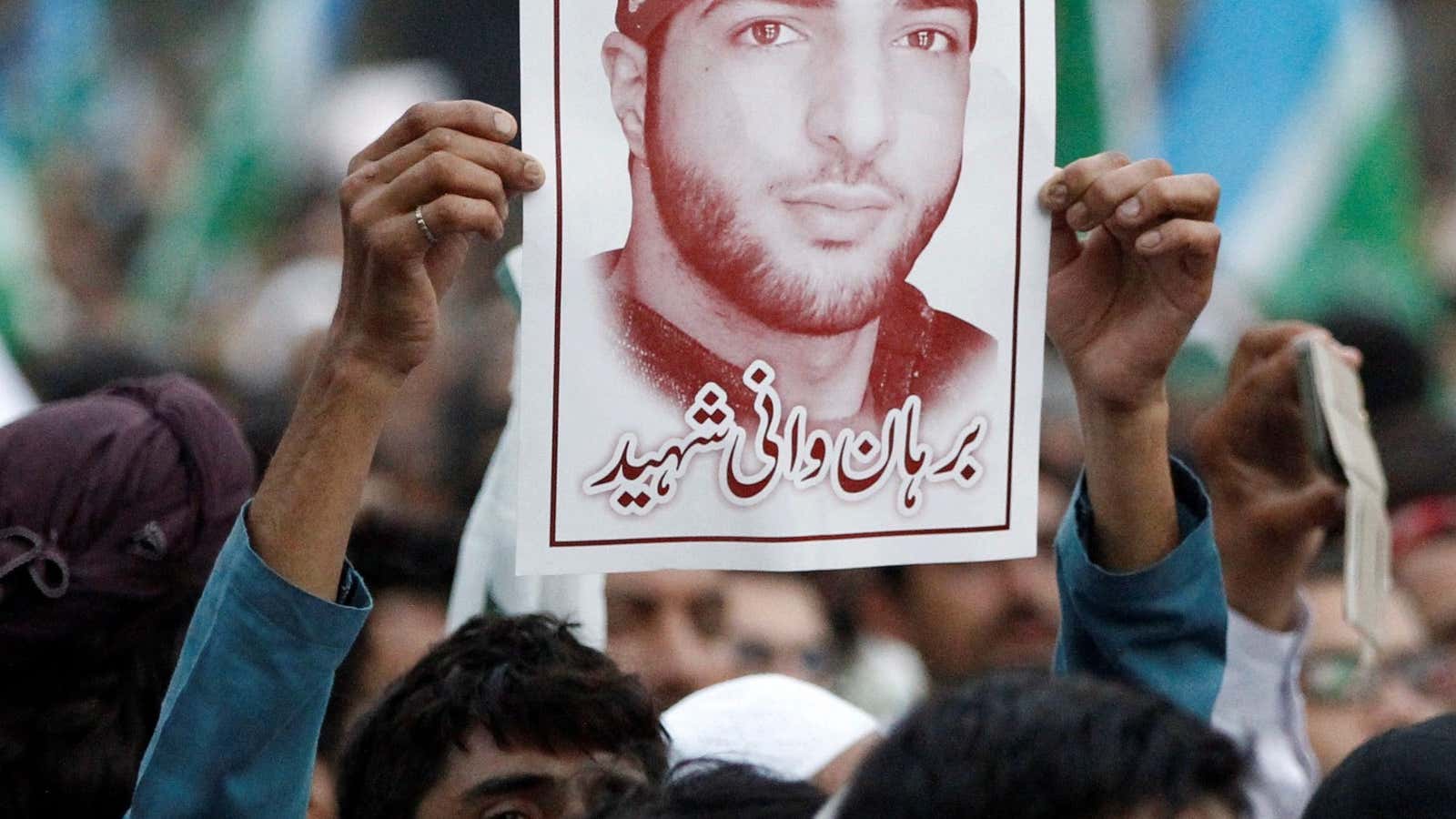India has many names for armed separatist group Hizbul Mujahideen’s posterboy Burhan Muzaffar Wani—a terrorist, a militant—but none of them paint him as a hero.
While addressing the United Nations General Assembly on Sept. 21, Pakistan’s prime minister, Nawaz Sharif, eulogized Wani as a “young leader murdered by Indian forces.” Sharif lauded the 22-year-old whose killing by the army in the Indian state of Jammu and Kashmir has put the state in turmoil that has led to over 80 civilians losing their lives.
Sharif credited Wani for emerging “as the symbol of the latest Kashmiri Intifada, a popular and peaceful freedom movement, led by Kashmiris, young and old, men and women, armed only with an undying faith in the legitimacy of their cause, and a hunger for freedom in their hearts.” He called India’s stronghold over the region a form of “brutal repression by India’s occupation force of over half a million soldiers.” Most Indians, however, see the gun-wielding Hizbul militants as far from peaceful.
“It is shocking that a leader of a free nation can glorify a self-declared terrorist (Burhan Wani). This is self-incrimination by Pakistan,” Indian minister of state for external affairs M J Akbar told local media in India.
Wani, arguably Kashmir’s most influential militant commander in recent times, was the root of the social media-driven psychological warfare in the disputed state. The son of a school teacher became a tech-savvy member of the insurgency at age 15. Since then, he had taken his group’s campaign for Kashmir’s merger with Pakistan to platforms like Facebook and WhatsApp, circulating videos and photos on social media.
Indian foreign ministry spokesperson Vikas Swarup tweeted about Sharif putting the young militant on an undeserved pedestal.
Referring to the decades-long tension between the neighbours, Sharif said “Pakistan wants peace with India. I have gone the extra mile to achieve this, repeatedly offering a dialogue to address all outstanding issues.”
Akbar rebuked his statement when talking to the local media and followed up with serious allegations in response. “Pakistan at this moment seems to be run by a war machine rather than a government,” Akbar said. “Pakistan wants dialogue while holding a gun in its hand… Talks and guns don’t go together.”
